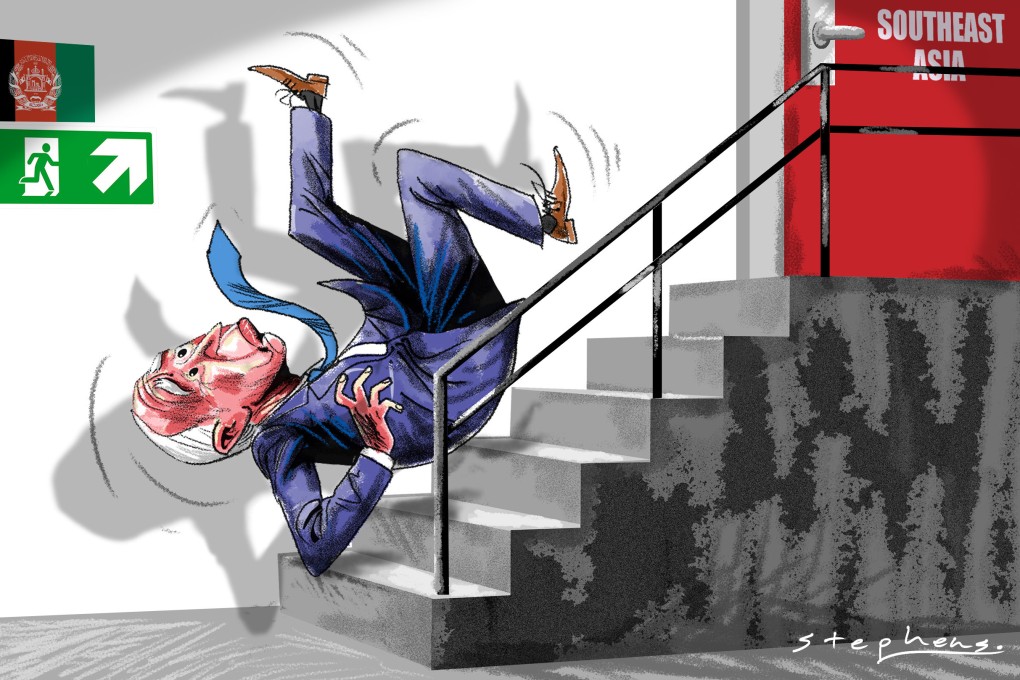Opinion | 3 reasons Afghanistan withdrawal could ruin US influence in Southeast Asia and beyond
- Biden’s decision to press ahead with the exit from Afghanistan was meant to free up US resources for full-spectrum competition with China
- However, polarised domestic politics, doubts over US commitment and worries about terrorism emanating from Afghanistan could all backfire

“Defeat is one thing; disgrace is another,” Winston Churchill said of the collapse of British forces at the hands of Axis powers in the Siege of Tobruk. As an astute politician, the British prime minister instinctively grasped the psychological impact of unexpected military defeats and, more crucially, the overall centrality of prestige to global power.
This is especially true in critical regions such as Southeast Asia, where a resurgent China is rapidly gaining influence with its combination of large-scale economic incentives, technological sophistication and growing military prowess.
To this end, throughout its first six months, the Biden administration has embarked on a turbocharged diplomatic offensive to rally like-minded powers and win over reluctant allies across the Indo-Pacific.

